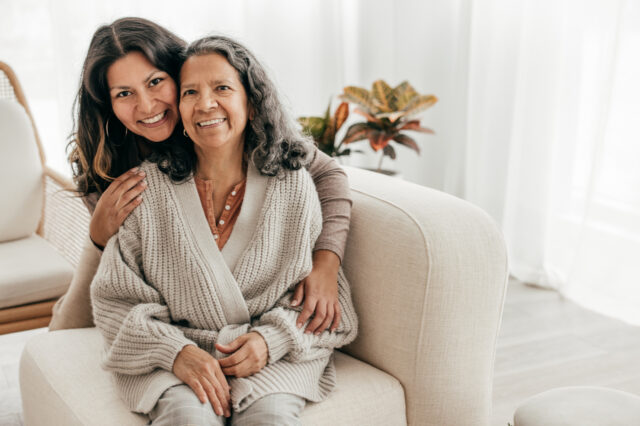The Importance of Self-Care for Family Caregivers
Family caregivers provide an invaluable service to their family members who are sick or in need of help. However, caring for loved ones may cause problems for the caregiver.

Family caregivers provide an invaluable service to their family members who are sick or in need of help. However, caring for loved ones may cause problems for the caregiver. Caregivers who keep giving and rarely replenish themselves suffer emotional and physical consequences, including an increased risk of depression, stress and use of alcohol, tobacco or other drugs. Caregivers are more likely than non-caregivers to suffer from chronic illnesses, such as diabetes, high blood pressure and being overweight. Many caregivers report a lack of exercise and sleep, poor eating habits and postponing their own medical care.
It is important for caregivers to know that it’s OK to put yourself first. When you’re on an airplane, you’re told in an emergency to put your oxygen mask on first before helping others. This is true when caring for others as well. If you are experiencing stress, or have other health problems and don’t take the time to care for yourself, it becomes much more difficult to care for others.
What are the benefits of self-care?
By practicing self-care, not only will you feel better, but also be able to provide better care to your family. Those who practice routine self-care are more resilient and less likely to burn out while caring for loved ones.
How do I start a self-care routine?
Starting a self-care routine can feel overwhelming. It’s best to start small by picking one thing you can do regularly that can be easily incorporated into your daily routine, such as enjoying a cup of tea or going for a 10-minute walk. Once you have done one thing consistently, it’s easier to add another to your routine.
Self-care tips
- Adopt a healthy lifestyle. Eat a well-balanced diet and drink plenty of water daily. Exercise at least three times a week, even if only for 10 minutes at a time.
- Ask for and accept help. Seek and accept help from others with caregiving and other responsibilities.
- Be kind to yourself. Take time off without feeling guilty.
- Do things you love. Participate in activities several times a week you find meaningful and enjoyable, such as reading a good book, taking a warm bath and listening to relaxing music.
- Reduce your stress. Learn and use stress-reduction techniques, including adult coloring books, deep breathing, guided meditation, prayer and yoga.
- Set limits. Set limits for what you can do, don’t overload your daily to-do list.
- Take care of your mental health. Seek supportive counseling when you need it, or talk to a trusted counselor, friend or pastor.
- Make sure to schedule regular visits with your health care providers, take your medications as directed, and follow diet and exercise programs recommended by your provider.
Remember, it’s OK to put yourself first by focusing on your own needs. Talk to your primary care provider and tell them you are a caregiver. They can connect you with resources, including a referral to a licensed clinical social worker, or LCSW, located at a UF Health Jacksonville primary care location.
UF Health Family Medicine and Pediatrics – Baymeadows offers primary care and behavioral health care services for all adults. Call 904-633-0800 to schedule an on-site or Virtual Visit appointment.
Visit UFJaxPrimaryCare.org to find a UF Health Family Medicine practice near you.